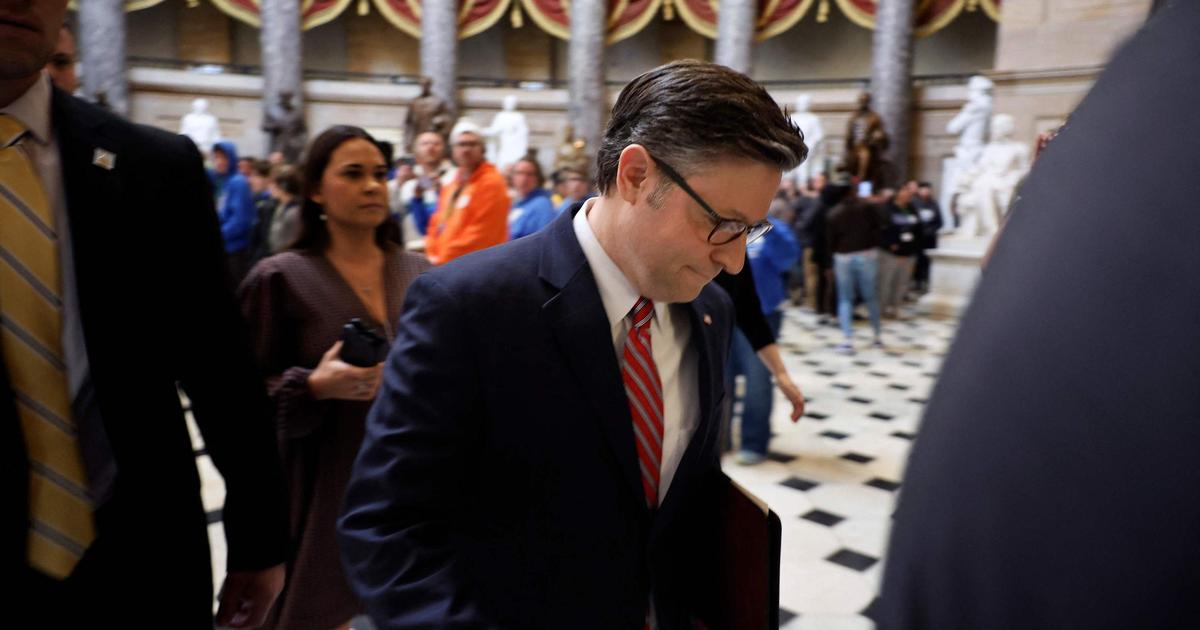WASHINGTON.— Congress resumed its sessions on Tuesday as it left on vacation in August: with the almost impossible task, due to differences between Democrats and Republicans, of negotiating a fifth economic relief package that includes a check for $ 1,200 to families to counteract the economic crisis caused by the coronavirus pandemic.
Faced with this political blockade, the leader of the Republican majority in the Senate, Mitch McConnell, said today that he will try to put to the vote this week a relief plan on a smaller scale - of about 500,000 million dollars - and focused on health coverage, the educational system, and unemployment benefits.
His intention is to dedicate public resources to the "most urgent" issues, according to McConnell, who wants to schedule the vote "as soon as this week" and then pass the responsibility to the House of Representatives, under Democratic control.
One of the main obstacles to passing a large relief package has to do precisely with its size: Democrats demand an investment of at least $ 2.2 trillion, while Republicans defend limiting it to 1.3 trillion.
How to protect your finances in the midst of the economic crisis caused by the pandemic
July 16, 202002: 03
Both parties have accused each other of attempting to sabotage the negotiations for political reasons, at a time when the COVID-19 pandemic has claimed more than 190,000 lives and continues to cause an economic meltdown for families, with an unemployment rate of 8.4 %.
The negotiations are also complicated because the Republican Party itself maintains internal divisions on whether or not to support another relief plan.
The House of Representatives had already approved in mid-May an aid package of just over three billion dollars, called the "Heroes Act", which included, among other elements, another round of checks for families, an expansion of the subsidies of unemployment, funding to expand coronavirus testing, and more aid for state and local governments.
That plan was rejected almost immediately by the White House and its Republican allies in the Senate, failing to achieve final approval.
Republican senators in July proposed a trillion-dollar plan that included new loans for small businesses, more funding for COVID-19 testing and treatment, and legal protections for schools, businesses and institutions against lawsuits related to the coronavirus. .
But the Democratic opposition, led by Nancy Pelosi in the House of Representatives and Chuck Schumer in the Senate, insisted today that this plan does not even serve to start negotiations, "and it will not go anywhere."
"This rickety bill is only intended to help vulnerable Republican senators [in the elections] to maintain the appearance that they are not hijacked by the far-right wing that does not want to spend a penny to help the people," Pelosi and Schumer said in a joint statement.
Democrats have also warned of the possibility of cuts in public services if state and local governments don't get the help they need.
The National Association of Governors estimates they will require a minimum of $ 500 billion, and has echoed warnings from economists that a reduction in services will exacerbate the economic crisis.
According to observers, the new Republican plan is unlikely to get the minimum 60 votes necessary for approval in the Senate.
However, time is short and several of the elements included in the March economic relief package have already expired, including the extension of an additional $ 600 in weekly unemployment benefits, the deadline to apply for business loans, and a moratorium on evictions. .
Threat of government shutdown
Parallel to these negotiations, Congress is also facing pressure to pass a spending bill as soon as possible to avoid a partial shutdown of the federal government on October 1, when the new fiscal year begins.
The government is on the verge of exhausting its funds and, without the help of Congress, would have to shut down its operations not related to national security and make contingency plans for the possible suspension of thousands of public employees.
Treasury Secretary Steven Mnuchin said Sunday that the White House has reached an agreement in principle with Democrats to fund government operations through the end of December, but did not elaborate.
Mnuchin, who is leading those parallel negotiations, expressed confidence that the details of the spending resolution will be finalized this week.








/cloudfront-eu-central-1.images.arcpublishing.com/prisa/B42JEGVZNRCR3GWAER54BAPQZY.jpg)






